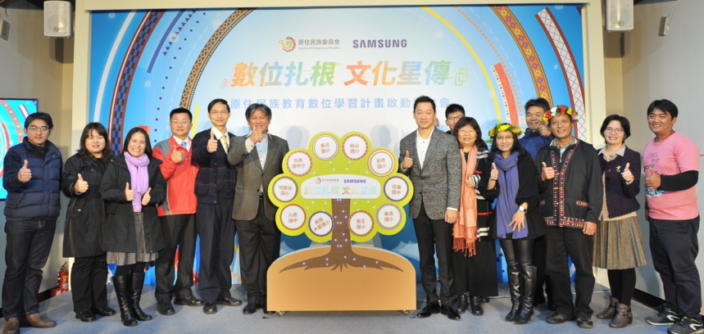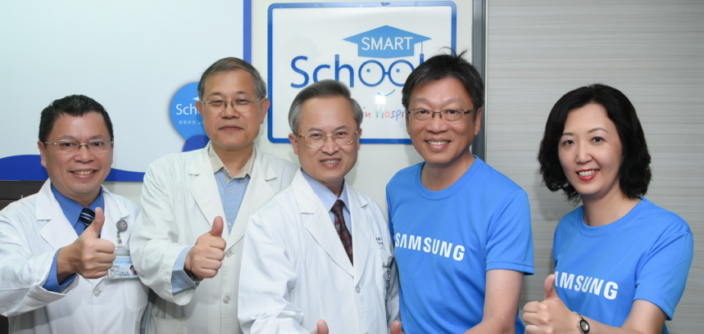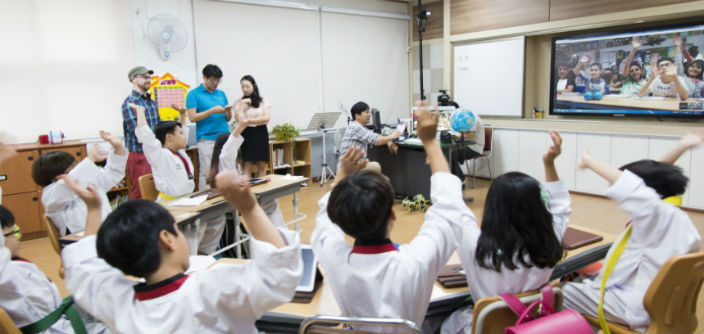More Than 3,000 Samsung Smart Schools Nurture the Talent of Tomorrow Through Digital Education
on July 14, 2017
Samsung’s Smart Schools work with global governments and organizations to provide classrooms in underserved communities around the world with its technologies and products, so that more students may enjoy the full benefits of a quality digital education.
So far, the initiative has supported over 3,000 schools that have allowed well over 1.4 million bright young minds to learn in more fun and interactive environments. As is the case with Samsung’s Tech Institutes and other education-enriching initiatives, the ultimate goal of the Smart School program is to level the playing field to help students in these communities thrive in the digital era.

Accessible Education for All
According to the 2016 UN Sustainable Development Goals report, some 124 million children and teenagers worldwide were unable to receive a proper education due to financial costs and lack of accessibility in 2013, the latest year for which data are available. Because education is a major determinant of one’s quality of life, not to mention the general well-being of a community, Samsung has made an effort to improve access to education through its Smart School initiatives.
For example, Samsung’s African Regional Head Office has jointly operated solar-powered internet schools throughout Africa in cooperation with the Korea Education & Research Information Service (KERIS) under the Korean Ministry of Education since 2011. Equipped with Samsung’s tablets, PCs, and other devices, the schools motivate students through captivating lessons taught by local, KERIS-trained teachers. Similarly, Smart School’s Engineering Academy in Nairobi provides tailored curriculum for those pursuing careers in engineering.
Today, 78 Smart Schools are operated in 10 African nations including Ghana, Ethiopia, Uganda and Kenya.

Meanwhile, in Taiwan, an estimated 500 children are diagnosed with cancer and hospitalized for months of arduous treatment. Because such medical difficulties often make it impossible for them to attend school with their peers, in January, Samsung Electronics Taiwan (SET) partnered with Kaohsiung Medical University Chung-Ho Memorial Hospital to open the very first hospital-based Smart School.

Designed to create a motivating learning environment, the Smart School features TVs and tablets pre-installed with educational apps that allow children to learn in fun and engaging ways. In this way, hospitalized children are able to regain a sense of normalcy without falling behind in their studies.
Empowering Young Women Through Digital Education
Despite the fact that many countries throughout the world have worked to close gender gaps in education and labor force participation, many gender differences still persist. Women, for example, are less likely to enter the fields of science, technology, engineering, and mathematics – areas collectively known as STEM.
Recognizing this, Samsung established the Smart School’s Female Academy Program in Ghana. Here, women attend a series of training sessions facilitated by knowledgeable field experts. Through their education, the female participants are equipped with the tools they need to pursue STEM fields.

Likewise, Samsung’s North American Regional Head Office, in collaboration with Discovery Education, an NGO dedicated to coding education, offers an extra-curricular program to fourth and fifth grade girls. Offering a wide range of hands-on computer programming and electronic training activities, emPOWER Tomorrow helps girls develop an interest in science, technology, and coding. Furthermore, they are given the opportunity to meet with Samsung’s female scientists and engineers to explore future career options.
Enriching the Learning Experience
Perhaps no other learning tool is more effective than technology. With classroom technology, educators can get more students engaged, improve collaboration, and most importantly make learning fun.
For instance, when Samsung launched its Digital Classroom program to address digital skills gaps in the UK in 2013, it outfitted a total of 15 digital classrooms with a complete suite of educational tools including tablets, laptops, and an interactive whiteboard. Samsung’s research findings that were announced last September underlined the great strides that the students made in developing digital skills, and showed that, overall, those who took part demonstrated much greater confidence and teamwork.
Meanwhile, in Bulgaria earlier this year, Samsung Bulgaria and Junior Achievement Bulgaria partnered with the State Archives to digitize some 22,000 valuable historical documents as part of an ongoing effort to preserve the country’s national heritage. The three-way partnership resulted in the nation’s first fully digitized lessons in history, literature and the arts, which will allow students in Smart Schools and in classrooms across the country to study and experience new facets of their country’s rich history.

Across the world, Samsung Electronics Taiwan established yet another first-of-its-kind Smart School – one that allowed students at three different schools in various corners of the country to simultaneously tour Taiwan’s Museum of Contemporary Art. In the ‘co-learning connected course,’ one school served as host, livestreaming a tour of the museum using Samsung’s Gear 360 and Galaxy S8, while the others followed along remotely from their classrooms. After the tour, the schools competed against one another in a fun pop quiz utilizing Samsung tablets.

By establishing more Smart Schools in different corners of the world, Samsung aspires to arm the next generation with the tools they’ll need to better connect with one another, quench their thirst for knowledge, and ultimately conquer the challenges of tomorrow.





